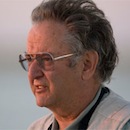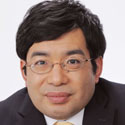Academic Editors
The following people constitute the Editorial Board of Academic Editors for PeerJ. These active academics are the Editors who seek peer reviewers, evaluate their responses, and make editorial decisions on each submission to the journal. Learn more about becoming an Editor.

Konstantinos A Kormas
I completed my Biology BSc (1994) and PhD (1998) on marine ecology at the National and Kapodistrian University of Athens, Greece. I worked as a post-doctoral investigator on coastal Cyanobacteria at the Trondhjem Biological Station, Norway (2000) and at the Woods Hole Oceanographic Institution, USA (2000-2002) on deep-sea microbiology. In March 2005 I was appointed as faculty of aquatic microbial ecology at the Department of Ichthyology & Aquatic Environment, University of Thessaly, Greece. Since March 2015 I am a full Professor at the same department.
Our research group investigates processes that are related the distribution and abundance of microorganisms in different aquatic habitats and also aquatic animal-microbe interactions.

Stuart L Pimm
Doris Duke Chair of Conservation Ecology at the Nicholas School of the Environment at Duke University. His international honours include the Tyler Prize for Environmental Achievement (2010), the Dr. A.H. Heineken Prize for Environmental Sciences from the Royal Netherlands Academy of Arts and Sciences (2006), and the International Cosmos Prize 2019.

Daniela P Foti
Graduated in Medicine and Surgery at the University of Catania, Italy, specialist in Endocrinology and in Internal Medicine, PhD in Endocrinological and Metabolic Sciences. Full professor of Clinical Pathology, University "Magna Græcia" of Catanzaro, Italy.
Her scientific field of interest is related to endocrinology and metabolism, and to the study of novel biomarkers in human diseases. She is author of more than 120 scientific publications. Dr. Foti is a member of the Italian Society of Pathology and Laboratory Medicine (SIPMeL) and of the Italian Society of Pathology and Translational Medicine (SIPMeT).

Kenneth De Baets
I am a paleobiologist. My main research focuses on reproductive strategies and macroevolution, particularly on the relative contributions of biotic interactions (e.g., parasitism) and abiotic factors (e.g., climate) in driving these large-scale patterns. Other interests are quantitative methods to study biostratigraphy, intraspecific variability and paleobiology in general. My main tools for these purposes are invertebrates, mainly ammonoids (extinct cephalopods) and parasitic flatworms.

Héctor Manuel Mora-Montes
In 2010, I established the Laboratory of Fungal Glycobiology at Universidad de Guanajuato, Mexico, with the main goal to understand the synthesis mechanisms of the fungal cell wall and the interaction of medically relevant fungal pathogens with the host. This laboratory is characterized by its facilities to perform chemical, immunological, genetic, molecular, and cellular analyses of human fungal pathogens. Therefore, it is among a handful of research facilities within Mexico and Latin America offering a multidisciplinary and integral approach to understand the host-fungus interaction. Our group has a solid international reputation in the molecular and immunological studies of organisms belonging to the genus Candida and Sporothrix.

Charles Odilichukwu R Okpala
Charles Odilichukwu R. Okpala is a Chartered Scientist (CSci) of the Science Council-UK, Fellow - Institute of Food Science and Technology (FIFST-UK), Certified Food Scientist (CFS) - International Food Science Certification Commission (IFSCC-USA), Professional Engineer (PEng-UK), Member - Institution of Agricultural Engineers (MIAgrE-UK), Fellow - Linnaean Society of London (FLS), Member - Institute of Food Technologists (MIFT-USA), as well as Member - International Association of Food Protection (MIAFP-USA). He underwent specialist food science/chemical engineering research training at the University of Strathclyde, Glasgow-UK(MRES-Food Science, 2010), European Federation of Chemical Engineers at Koc Universitesi-Istanbul, Turkey(Intensive Lifelong Learning Diploma- Chemical Engineering, 2009), as well as advanced specialist food nutrition technology research training at Wrocław University of Environmental and Life Sciences(UPWr), Wrocław-Poland (PhD -Food Technology, 2023). He holds an excess of 75 other credentials, for example, FSPCA Preventive Controls for Human Food Certified(USA); HACCP Meat & Poultry Certified(USA); Certified ServSafe® Instructor/Registered Examination Proctor(National Restaurant Association-USA); Certified ServSafe® Food Protection Manager(National Restaurant Association-USA); Produce Safety Alliance (PSA) Train-the-Trainer (Association of Food and Drug Officials, USA); etc. Currently, he is a County Extension Agent/Assistant Professor cadre with the UGA Cooperative Extension, College of Agricultural and Environmental Sciences, University of Georgia Athens, USA. He is also affiliated with the Faculty of Biotechnology and Food Sciences, Wrocław University of Environmental and Life Sciences, Wrocław-Poland. Previously, he held research positions at other notable institutions, for example, Research Fellow at IRBIM CNR (previously known as IAMC CNR) Mazara del Vallo, Trapani-Italy (2015-2016), Research Associate at Global Public Health Unit, Monash University Sunway Campus, Malaysia (2012-2013), etc. Among other vocations, he is an Independent Academic - Research Practice Consultant, Lead Internal Quality Assurer, and Lean Six Sigma Black Belt Practitioner. He has an excess of 100 peer-reviewed articles published in promising ISI impact factor journals. In addition to being an academic/guest editor, he serves as a scientific reviewer for over 40 Scopus-indexed journals. He has delivered posters as well as presentations at international conferences/seminars, and received awards. As a Strathclyder, Charles is very passionate about the following: utilization of animal products in sustainable global food systems; agri-food processing/production/quality; consumer safety/food protection; foodservice industries and their personnel development; family consumer sciences/extension services; environmental public health/epidemiology; qualitative and quantitative research methods; quality management of agrifood products/socio-related aspects of foods. Importantly, Charles trusts Almighty God to lead him in academic, administration, and vocational endeavors, and extremely passionate about seeing colleagues excel and succeed.

Robert Winkler
Robert Winkler is Principal Investigator of the Laboratory of Biochemical and Instrumental Analysis at the CINVESTAV Unidad Irapuato and faculty member for the postgraduate programs Plant Biotechnology and Integrative Biology. His research topics include novel mass spectrometry techniques such as low-temperature plasma ionization and covalent protein staining, new approaches in the high-throughput metabolomic profiling of plants, computational mass spectrometry and proteomics.

Dezene PW Huber
In our lab we work on bark beetle functional genomics, understanding tree defenses against herbivores and pathogens, insect chemical ecology, and insect biodiversity.
We conduct our research across multiple scales and we use available tools – established and cutting-edge – to search for answers to complex entomological and ecological questions.

Diogo B Provete
I am an Assistant Professor of Ecology and Statistical Ecology at the Federal University of Mato Grosso do Sul, Brazil. My primary research interests include metacommunity ecology, biogeography, macroecology, and macroevolution. I often use phylogenetic comparative methods, geometric morphometrics, and multidimensional analysis in my research. I'm an elected member of the Science Committee of the Ecological Society of America, Chair of the ESA Latin America Chapter and serve as an Associate Editor for Amphibia-Reptilia, Journal of Herpetology, and Ecosphere. So far, I have published 30 papers on ecology and herpetology in international journals, 4 book chapters, in addition to a book on Biogeographical patterns of South American Anurans by Springer. My research has been featured in F1000 Prime and several Brazilian newspapers. I have advised four master's students. I have been invited to present my research in Swansea (UK), Argentina, Recife, and São Paulo. I served as Editor-in-Chief for Check List, and also was a member of the editorial board of five other zoology journals.

Patricia Gandini
Professor of Biological Consevation and Management and Design of protected Áreas, Universidad Nacional de la Patagonia Austral, investigator of National Council of Scientific and Technical Research, Past President of Argentine National Parks. Recipent of the 2010 Award Leaders for the Living Planet

Khor Waiho
Researcher at the Institute of Tropical Aquaculture and Fisheries, Universiti Malaysia Terengganu. Dr. Khor Waiho obtained his Ph.D. in Aquaculture from Universiti Malaysia Terengganu (2016) and completed a 2-year postdoctoral (Biology, 2017-2019) at Shantou University, China. His current research focus includes the impact of climate change on crustacean growth and reproductive biology, population biology and fishery, and the aquaculture of economically important crustacean species.

Kenta Nakai
Professor of Human Genome Center, the Institute of Medical Science, the University of Tokyo, Japan. Editor of DNA Research and Mathematical Biosciences. Former president of the Japanese Society of Bioinformatics.

